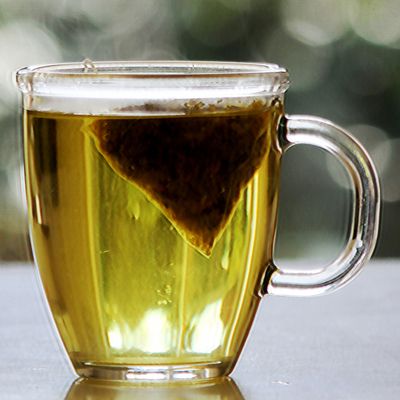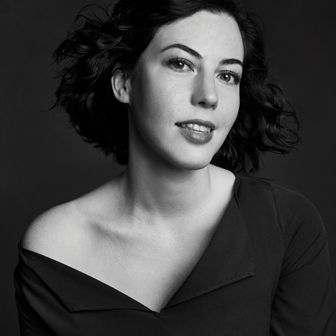
I’ve always been a pretty anxious person. I used to freak out on the regular while back in college, and now I panic at the prospect of a crowded sample sale or a promising job interview. I generally try to keep my anxiety in check by working out regularly and avoiding the president’s tweets — but sometimes I still find myself tossing and turning at night (wondering what, exactly, is going on with that sinkhole). So I’m always on the lookout for new ways to help relieve my anxiety, and some friends recently suggested I start drinking chamomile tea to help with my nerves. To see if it might actually be able to help me calm down, I consulted with two experts.
First of all, what exactly is chamomile? Well, chamomile is actually an incredibly popular herb, and it’s often used for medicinal purposes. There are two different chamomile plants: German chamomile and English chamomile. Dr. Chris D’Adamo, an assistant professor at the University of Maryland School of Medicine, told me that German chamomile is the one that’s most commonly used medicinally. The plant has actually been used therapeutically for “hundreds of years, if not more,” Dr. D’Adamo explained, and it’s most commonly used to help people calm down, relieve stomach issues, help with inflammation, and treat skin conditions.
So, what about anxiety? As it turns out, studies have shown chamomile to be effective in aiding with relaxation, and also helping with anxiety, depression, and insomnia. Of course, since it’s an herb, it’s not going to have as strong of an effect on a person’s anxiety as a pharmaceutical drug like Klonopin or Ativan, but Dr. D’Adamo told me that chamomile has still been shown to have “meaningful benefits.” In fact, a small 2016 study in the journal Phytomedicine found that long-term chamomile use “significantly” reduces moderate-to-severe symptoms of generalized anxiety disorder (one of the most common anxiety disorders). However, Dr. D’Adamo explained that there still isn’t too much information about how exactly chamomile works to ease anxiety, but still, it’s shown to at least be helpful.
But is that just a placebo effect? I asked Dr. D’Adamo if part of the reason chamomile tea might help with anxiety is the ritual of it all — you know, sitting down and actually slowly sipping hot tea as you clear your mind, which sounds very relaxing and calming in my opinion. He told me that there have actually been placebo-controlled studies on the benefits of chamomile, which found that its powers extend far beyond just the placebo effect (though he also said sure, the ritual may help with a person’s relaxation). “When people have anxiety and they’re looking for non-pharmacological treatments, chamomile is always one of the first to come up,” he said.
How should I take chamomile? According to registered dietitian Amy Shapiro, you can take your chamomile a couple of ways. The most popular way, of course, is through tea, which you can find prepackaged, or you can make yourself. If you do want to go the DIY route, Shapiro recommends using three to four tablespoons of dried chamomile (which you can easily pick up at a farmer’s market), pour hot water on top of it, then cover for five to ten minutes. If you want to use fresh chamomile, all you have to do is add it to hot water and let it steep for about three minutes. And then, the non-tea way to get chamomile is in supplement form.
Who should stay away from chamomile? Luckily, chamomile is generally pretty safe, and a person is usually fine to have up to few cups per day, Dr. D’Adamo explained. However, chamomile is not recommended for anyone who is taking anticoagulant medications or is about to have surgery, according to the doctor. Shapiro added that people with asthma or who are pregnant might also want to steer clear of it, as well as anyone who’s allergic to sunflower products, because chamomile is in that same family.





